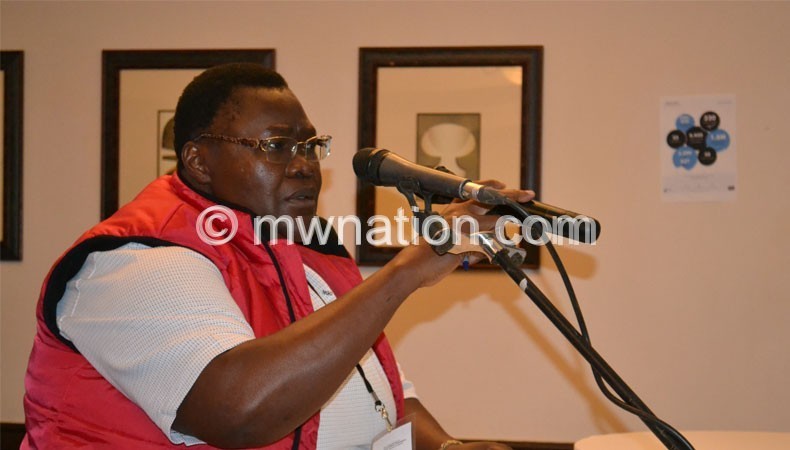Why should women die?
Inkosi Mabulabo receives profound respect in Mzimba South, where he gets informed about every childbirth and funeral.
In his territory, men and women go on their knees in honour of the Ngoni senior chief.
However, the royal often has to lie when confronted with horrors of backstreet abortions, the fourth-largest killer of pregnant women in Malawi.
“I am tired of telling lies. We need to do something about this neglected killer,” he says.
Last month, Mabulabo graced the burial of a girl, about a 15 years old, who succumbed to severe bleeding resulting from a clandestine abortion.
The country’s colonial law only permits termination of pregnancy to save a woman’s life, but the chief backs demands for more grounds of safe abortion. He rebuts counterviews which discredit demands for safe abortion as an alien agenda, saying the women “dying needlessly” are Malawians.

He narrates: “When a Form Three girl in my area died, a pastor, who preached at her funeral, told all lies to conceal that she had died from a secret abortion, not stomachaches.
“Yet, when I inquired from the health centre where she was hospitalised, she had procured an abortion because she was afraid of her parents and wanted to return to school when classes resume after the disruption caused by the coronavirus pandemic.”
Rural challenge
Mabulabo is worried that rural women bears the brunt because providers of safe abortion and post-abortion care are beyond reach.
He states: “It pains us as community leaders to bury rural women and girls yet their colleagues in town are surviving; they can safely terminate pregnancy in private clinics despite the restrictions in the Penal Code.
“Why should rural women and girls harm their wombs with cassava stems, wires, herbs, soap and toxic concoctions prescribed by unskilled birth attendants when their urban peers can safely terminate the same pregnancy using medicine? We need a law that is equal to the rich and poor.”
Father Henry Saindi, spokesperson of the Episcopal Conference of Malawi—a grouping of Catholic bishops—discredits “safe abortion” as killing. The church teaches that life begins at conception.
However, women keep dying from abortions conducted by unskilled hands in hidden settings that do not meet medical standards.
A 2009 study by the Ministry of Health shows that almost 100 000 abortions occurred despite the colonial ban and two thirds happened in rural areas. According to the findings, 33 000 women were treated for complications of induced abortion, which kill up to 18 in every 100 pregnant women.
The Health Committee of Parliament has resolved to table three more grounds for safe abortion for debate during the current sitting.
If passed, the Bill to be tabled by Mathews Ngwale, chaiperson of the Parliamentary Committee on Health, will allow a woman to terminate a pregnancy when it threatens her physical and mental well-being, if the foetus is severely malformed and the pregnancy results from rape, defilement and incest.
However, it faces resistance from some religious leaders, including those that had representatives in the Special Law Commission on the Review of Abortion Laws.
“Why are they turning around now?” asks Mabulabo. “Let’s be realistic: The only group that was not represented were satanists.”
The Ngoni chief says even God-fearing Malawians will be saved from preventable deaths, injuries and disabilities if Parliament expands exceptions to the current law.
“Religious leaders should stop misleading Malawians: The Bill isn’t legalising abortion, but just proposes new grounds to the existing law,” he says, adding the religious backlash personifies men’s longing to control a woman’s body and sexuality.
He reckons most faith groups, like the institution of chieftaincy, are led and dominated by men, who should not make decisions for every woman.
“This Bill is a health issue, not a religious or moral debate. Clergymen should continue preaching to faithful women though this has not stopped a woman from terminating a pregnancy,” he says.
Beyond sermons
The 2009 study showed nearly all women who terminated pregnancies—98 in every 100—belonged to some religion.
“When a woman decides to terminate a pregnancy, the law and religious sermons won’t stop her , but we can do something to reduce maternal deaths caused by unsafe abortion,” says reproductive health expert Chisale Mhango, from the University of Malawi’s College of Medicine (CoM).
The Reverend Cliff Nyekanyeka of CCAP Blantyre Synod questions clergymen’s claims that they were not consulted in the law reform Coalition for the Prevention of Unsafe Abortion leader Emma Kaliya termed “too long a journey”.
He says: “I believe the law commission was representative and would not have included every denomination, but the mother bodies to which they belong.”





